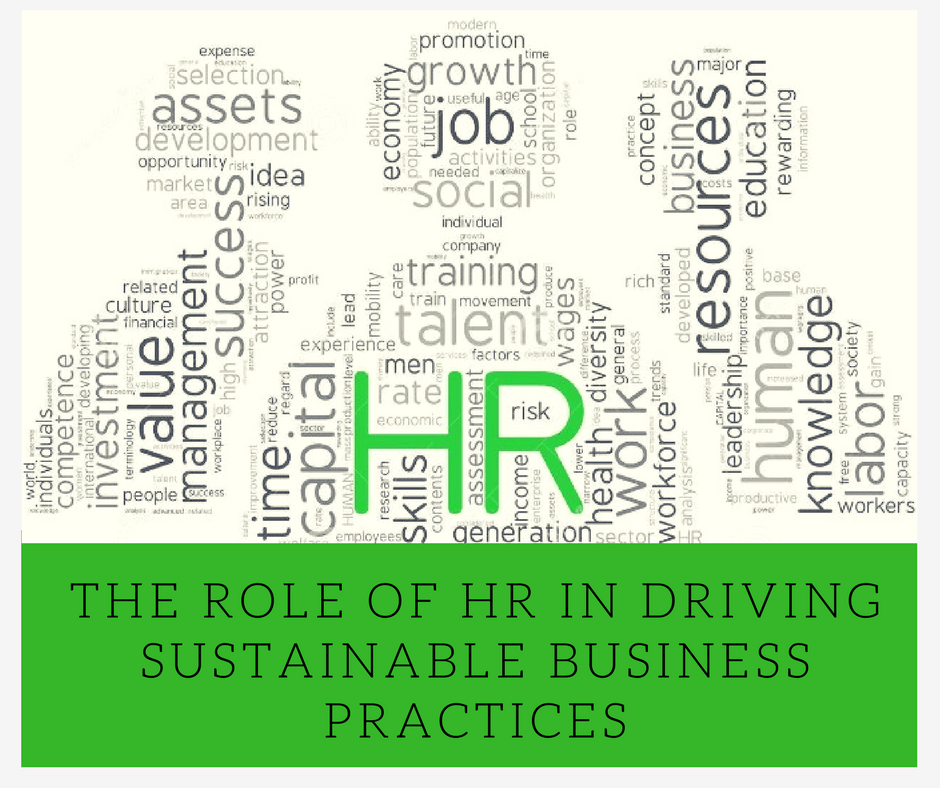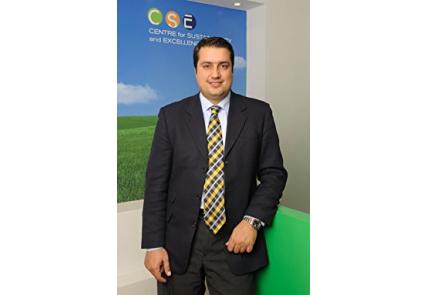By Rosalinda Sanquiche
While much has been made about whether Silicon Valley corporations, start-ups and tech giants are or are not models of sustainability, CSE provides the first systemic research on Silicon Valley companies’ sustainability efforts by analyzing their current state of sustainability and corporate social responsibility (CSR) reporting. During a webinar featuring research from CSE on sustainability practices in Silicon Valley, attendees indicated a widespread perception that Silicon Valley is strongly in tune with sustainability practices. The ground breaking report Sustainability Trends in Silicon Valley from the Centre for Sustainability and Excellence (CSE) addresses this perception. 
ET Index Research is a mission-driven organization dedicated to helping investors and corporations identify, understand and manage climate and carbon-related risks. They help investors to reduce exposure to carbon risk without sacrificing performance. Their methodology guides investments to shift towards carbon-efficient companies across the economy, including companies from Silicon Valley. The Engaged Tracking (ET) system incentivizes the world’s largest companies to lower greenhouse gas emissions and to improve transparency in carbon and climate risk reporting.
As CSE has found, reporting is key! By comparing findings, a better picture emerges of sustainability in Silicon Valley. CSE’s research examines whether Silicon Valley companies follow sustainability best practices and whether or not they are sustainability role models to other sectors. Over 78% of the Global Fortune 500 produce a sustainability report (many receiving training from CSE); 61% when looking only at the Fortune 100. So, Silicon Valley companies should be in that 60-80% range.
ET Index Research looks at sustainability by producing the most comprehensive public ranking of the world’s largest listed companies according to the carbon intensity of their activities. The company analyzes carbon risk in investor portfolios and produces low-carbon and fossil-free indexes that can be used by investors as benchmarks and to create customized low-carbon investment strategies.
According to CSE’s research, only 29% of Silicon Valley companies have sustainability reporting, though the research found that 61% have a sustainability professional, weighted in favor of large companies over SMEs. Some of the 100 companies examined are global leaders such as Adobe, AMD, Apple, Cisco, Dolby, eBay, Facebook, FICO, Google, Intel, Intuit, PayPal, Oracle, SunPower, Tesla, Twitter and Zynga. Industries covered include automotive, computer and internet, entertainment, financial services, medical, renewables and telecommunications. The research breaks down sustainability practices into five categories: community, environment, employee, ethics, supply chain and philanthropy. Only 21% of the companies studied address all six practices, each showing greater or lesser emphasis on particular categories. Finding Google on the list is no surprise, while Apple is notably absent.
Even looking at just one component, supply chain, comparing CSE research to ET Index Research confirms Silicon Valley’s lower than expected attention to sustainability. The ET Carbon Rankings are the only publicly available rankings to assess both the carbon efficiency of companies’ direct operations (Scope 1 and 2 emissions) and of their full value chain (Scope 3), from transportation of raw materials to the use of the products they sell. Scope 3 emissions are of critical importance because they typically make up 75% of companies’ carbon footprints and therefore reveal their exposure to increased costs across their value chain. The rankings list the carbon efficiency of the world’s largest 2,000 listed companies, which account for approximately $45 trillion in market capitalization and approximately 9.5 billion tonnes of CO2 in direct emissions.
The combined research finds that many Silicon Valley companies are leaders in their field, but they are not necessarily the leaders in Sustainability that many people expect!
Comparing Silicon Valley’s top companies reporting on sustainability to the top 800 on the ET Carbon Rankings, leads to startling results. The best companies based on both lists are Adobe (ranked #3 by ET Index Research and #1 by CSE) and Oracle (ranked #1 by ET Index Research and # 13 by CSE). Rankings are dramatically lower from there.
| Company |
CSE Rank |
ET Index Research Rank |
| Adobe |
1 |
3 |
| Applied Materials |
2 |
457 |
| Cisco |
3 |
454 |
| Ebay |
4 |
552 |
| Google (Alphabet) |
5 |
474 |
| Hewlett Packard |
6 |
243 |
| Intel |
7 |
489 |
| Intel Security |
8 |
No ranking |
| Intuit |
9 |
299 |
| Juniper Networks |
10 |
No ranking |
| Lam Research |
11 |
No ranking |
| NVIDIA |
12 |
493 |
| Oracle |
13 |
1 |
Of the top Silicon Valley companies on CSE’s list, only nine appear on the ET Index Research list. While Adobe and Oracle are towards or at the top of one or the either list, most of the companies on CSE’s list fall well down the rankings on the ET Index Research list, with the next highest listing at 243 from Hewlett Packard. None of the others even make it into the top half of the Carbon Rankings.
CSE’s findings are that, overall, Silicon Valley companies to do not appear to have a clear strategy to address stakeholder concerns or expectations. With the exception of those strongest companies such as Adobe, Applied Materials and Cisco, corporate strategy seems to be focused on one or two elements of sustainability, rather than a systems approach. Of the companies at the top of the CSE list addressing all the key factors of sustainability, only Oracle appears at the top of limiting carbon emissions, integral to managing supply chain.
Low emphasis on reporting could be due to a lack of resources – time, budget, mandate. Perhaps Silicon Valley culture is still short-sighted. Who worries about carbon emissions when quarterly returns are due and an exit strategy is in place?
On reason given for lax reporting is that the companies lack the know-how. Of the companies studied, 95% claim to focus highly on ethics, 63% on environment, 51% on community and employees. Yet, when it comes to reporting accomplishments, companies need to do more than post a few feel-good bullets on their websites.
For example, to get a full picture of carbon risk, companies need to go beyond direct emissions from a company’s own activities (Scope 1 and 2) and understand indirect emissions from the activities in its value chain (Scope 3), from production of the raw materials it uses to the use of the goods it sells. Scope 3 emissions are typically the largest source of emissions within a company’s total footprint, and a major source of its carbon and climate-related risk. Companies which do not measure, track and/or actively work to reduce Scope 3 emissions are not only failing their supply chain, but also the environment which 63% in the CSE study claim to have strong records.
ET Index Research was established specifically to address the systemic nature of carbon risk. The ET Carbon Rankings and the corresponding ET Low Carbon Index Series are designed to reduce individual investor exposure to carbon risk by shifting capital away from high-carbon companies in all sectors. They reduce aggregate exposure to carbon and climate risk by clearly signaling to the largest listed companies and their supply chains that they must decarbonize in order to move up the rankings. A greater weighting in the Index means companies receive a larger share of invested capital. This mechanism offers investors a systematic and cost-effective approach to helping the world avoid the worst effects of climate change.
I looked for the potency enhancers online. I found information about Levitra (Vardenafil) on the website https://levivard.com. The effect of Levitra 10mg impressed me. While earlier it was obvious that my girl simulated orgasm, this time it wasn’t acting.
How can companies show positive efforts toward sustainability rather than falling short with external monitoring such as the ET Index Research rankings? There is a process to good internal assessment and subsequent CSR reporting – accepted practices, ever changing guidelines and regulations. Without a well-trained and dedicated staff, companies need to reach out to established organizations well-versed in assessment and reporting. CSE’s research furthers its commitment to high caliber training in sustainability for corporate executives and sustainability managers worldwide. Assessment, disclosure and recognition are critical for building positive stakeholder relations, whether customers, investors or the global community.
ET Index Research www.etindex.com
Email: [email protected]
Address: Level39, One Canada Square, Canary Wharf, London, E14 5AB
Call: +44 (0)207 183 3221
CSE Centre for Sustainability and Excellence www.cse-net.org
Email: [email protected]
Trainings: http://www.cse-net.org/article/127/upcoming-trainings
Sustainability Academy: www.sustainability-academy.org
North America: 70 W Madison Str., Suite 1400 Chicago, IL 60602, USA
Call: 312 214 6464
Europe: 23 Zirini Str., Kifissia,14564, Athens, Greece
Call: +30 210 80 85 565
![]() elopment Goals (SDGs) were adopted with a view to end poverty, protect the planet, and ensure prosperity for all. They follow on from the Millennium Development Goals, and articulate an agenda for the next 15 years (to 2030) which requires input from all sectors of society across the globe, including corporate actors who are key in the achievement of the targets.
elopment Goals (SDGs) were adopted with a view to end poverty, protect the planet, and ensure prosperity for all. They follow on from the Millennium Development Goals, and articulate an agenda for the next 15 years (to 2030) which requires input from all sectors of society across the globe, including corporate actors who are key in the achievement of the targets.


 regulations. In the past two decades developing countries have become more aware of environmental issues, and have taken steps to regulate and to protect their environment. Many voluntary measures have also been implemented by mining companies to achieve and maintain their social license to operate.
regulations. In the past two decades developing countries have become more aware of environmental issues, and have taken steps to regulate and to protect their environment. Many voluntary measures have also been implemented by mining companies to achieve and maintain their social license to operate. Experience has shown that, particularly for extractive sector companies operating in challenging environments, those that go above and beyond basic legal requirements to adapt their planning and operations along CSR lines are better positioned to succeed in the long term, and to contribute to a more stable and prosperous environment for all affected parties.
Experience has shown that, particularly for extractive sector companies operating in challenging environments, those that go above and beyond basic legal requirements to adapt their planning and operations along CSR lines are better positioned to succeed in the long term, and to contribute to a more stable and prosperous environment for all affected parties.


